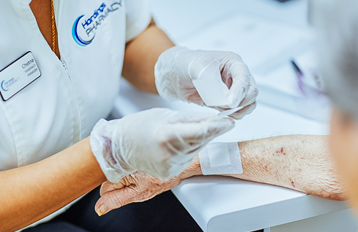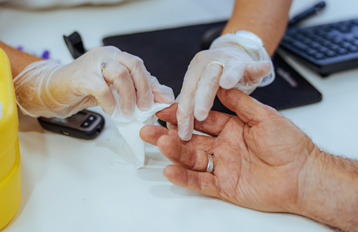Our kidneys are our bodies’ very complex and efficient waste disposal system.
They filter all liquids and sort waste from nutrients. Although we have two kidneys, we need at least one functioning kidney to survive and so kidney health is important to our wellbeing.
Our kidneys are vital to the body’s waste management process but all too often we take them for granted – a fact highlighted in statistics showing about 1.7 million Australians aged 18 years and over, or 10 per cent, have indicators of chronic kidney disease.

But alarmingly, less than 10 per cent are aware they have the condition, meaning that about 1.5 million Australians are unaware they have indicators of the disease.
Chronic kidney disease is a growing public health issue and about one in three Australians has an increased risk of developing this disease. The problem is compounded with the growing ageing population as more than 40 per cent of people over the age of 75 have an indicator of the disease.
Chronic kidney disease is called a ‘silent disease’ as often there are no warning signs and it is not uncommon for people to lose up to 90 per cent of their kidney function before any symptoms are apparent.
Our blood supply circulates through the kidneys about 12 times every hour. Each day our kidneys process about 200 litres of blood. The kidneys make urine from excess fluid and unwanted chemicals or waste in our blood.
There are some compelling reasons to look after our kidney health, not least of which is that people with chronic kidney disease have a two to three-fold greater risk of cardiac death than people without the disease. While the mortality associated with many chronic diseases including some cancers is stable and even declining, kidney disease is rapidly escalating, killing two Australians every hour.
There are a number of steps we can take to look after our kidneys?
Your community pharmacy can advise and counsel you on a range of lifestyle changes that may help you in trying to keep your kidneys healthy. The staff at the pharmacy can also advise you on any medicines you are taking for your kidneys and discuss how they work, any possible interactions and answer any other questions you may have about the medicines and the disease.











